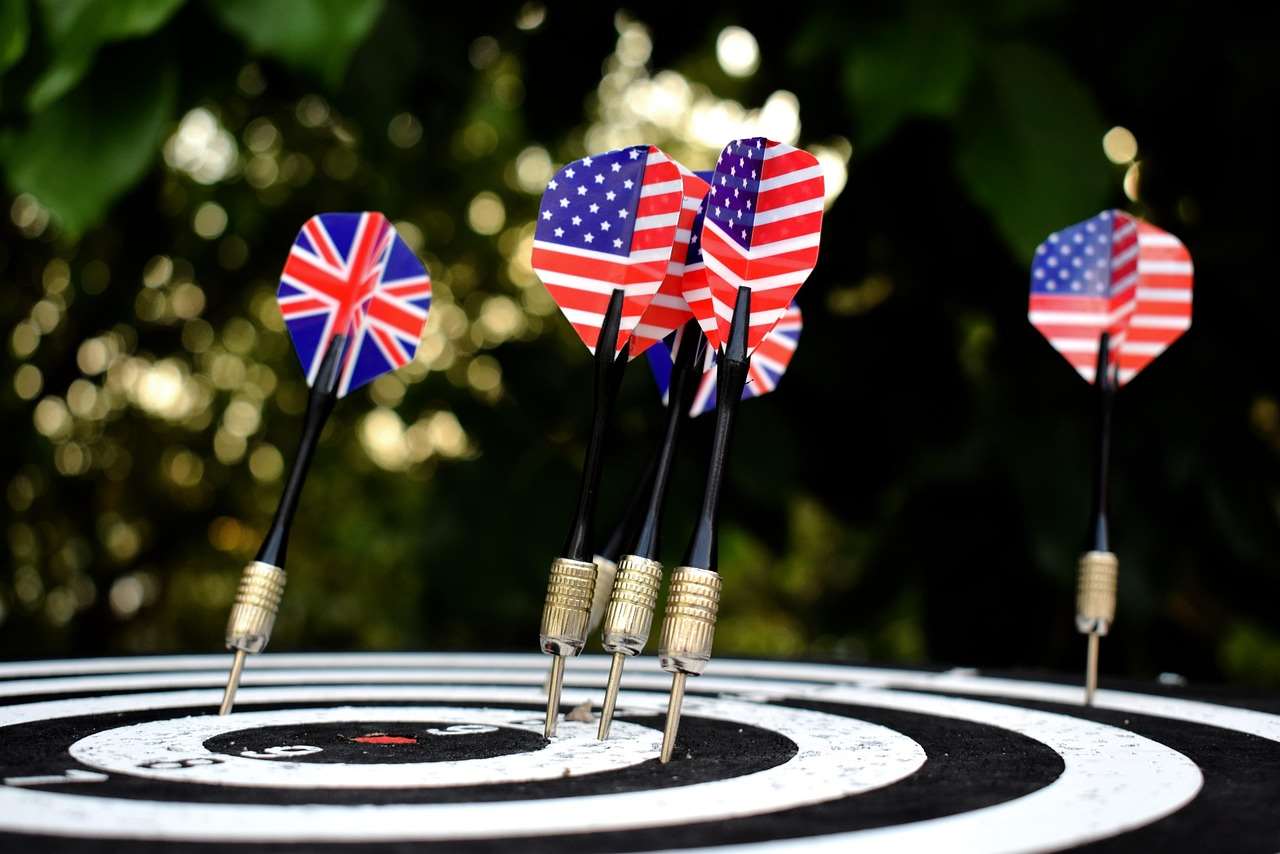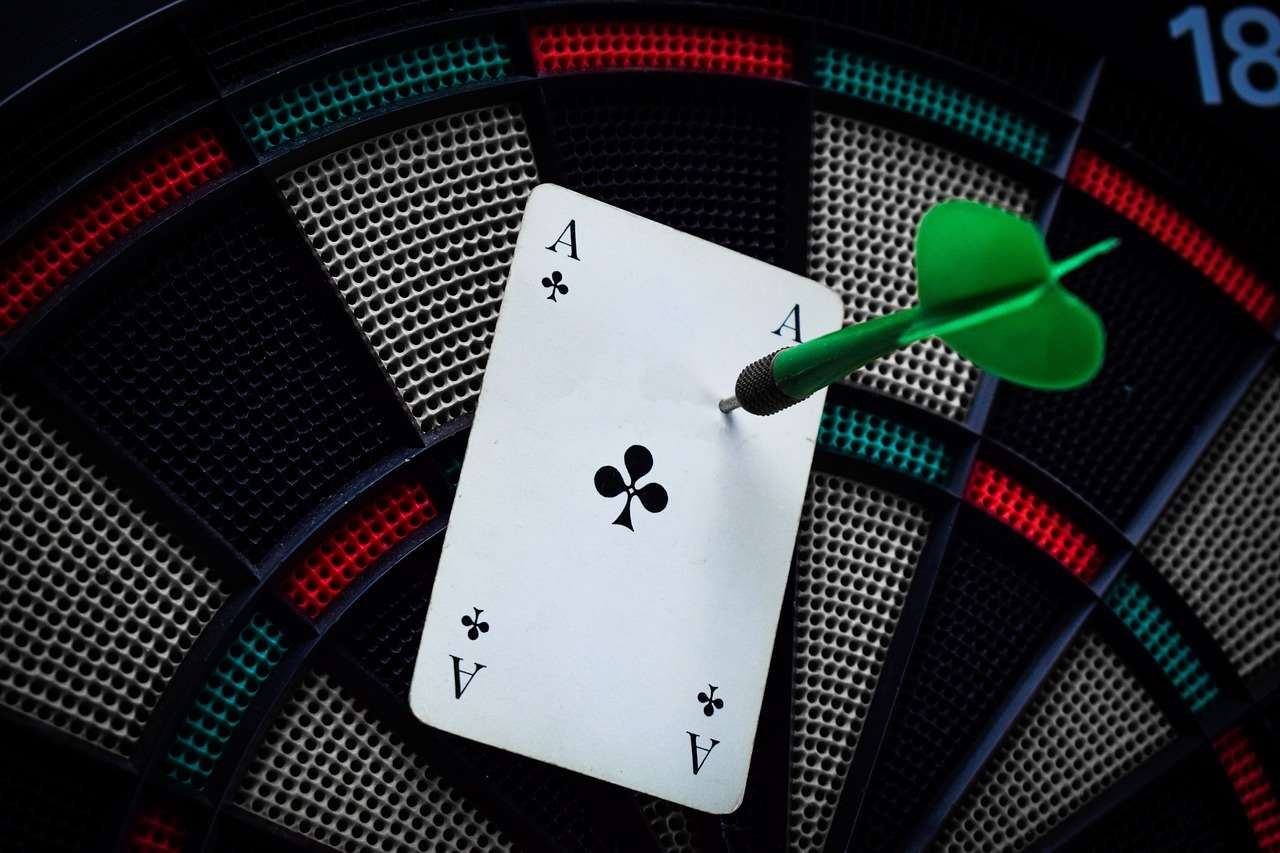The key to gaining a subtle edge in many competitive situations, particularly in precision sports, lies in understanding the importance of silence during an opponent’s throw; by remaining quiet and still, you avoid unintentionally disrupting their focus and concentration. This article explores how maintaining silence benefits both you and the integrity of the game, delving into the psychological impact and practical applications of this often-overlooked aspect of sportsmanship and fair play.
⚠️ Still Using Pen & Paper (or a Chalkboard)?! ⚠️
Step into the future! The Dart Counter App handles all the scoring, suggests checkouts, and tracks your stats automatically. It's easier than you think!
Try the Smart Dart Counter App FREE!Ready for an upgrade? Click above!
Understanding the Psychological Impact of Noise
Imagine yourself poised to throw, your focus narrowed to the target, every muscle calibrated for precision. Now, picture a sudden noise – a cough, a dropped object, a whispered comment. Even a minor distraction can shatter your concentration, leading to a missed shot. This highlights the importance of silence during an opponent’s throw; it is not merely a courtesy, but a crucial element of fair competition.
The human brain is incredibly sensitive to auditory stimuli. When focusing on a task requiring fine motor skills, like throwing a dart or shooting an arrow, the brain actively filters out distractions. Sudden or unexpected noises can overwhelm this filter, causing a momentary lapse in concentration. This lapse, however brief, can be enough to disrupt the delicate balance required for accuracy. By practicing mindfulness and minimizing extraneous noise, we help create an environment conducive to optimal performance for everyone involved.

How Noise Affects Concentration
- Increased Anxiety: Sudden noises can trigger a startle response, increasing anxiety levels and making it harder to maintain composure.
- Disrupted Visual Focus: Auditory distractions can momentarily pull your visual focus away from the target.
- Interrupted Mental Calculation: The brain may need to briefly re-adjust its calculations if there’s a sudden change in the environment.
- Loss of Momentum: A distraction can break the flow of your throwing motion, leading to inconsistency.
It’s important to recognize that different individuals have varying levels of sensitivity to noise. What might be a minor distraction for one person could be a significant disruption for another. This underscores the need for a universal standard of quiet and respectful conduct during competitive throws. You can learn more about Basic Darts Fundamentals for Beginners, which includes aspects of etiquette.
The Role of Sportsmanship and Respect
Beyond the immediate impact on performance, maintaining silence during an opponent’s throw speaks to the broader principles of sportsmanship and respect. It acknowledges the effort and dedication the opponent has invested in honing their skills. Intentionally or unintentionally creating distractions is not only unfair, but also undermines the spirit of healthy competition.
Sportsmanship encompasses a range of behaviors, including fair play, respect for opponents, and graceful acceptance of both victory and defeat. Maintaining silence is a tangible expression of these values. It demonstrates that you recognize the importance of providing a level playing field and that you are committed to competing with integrity.
Respect extends beyond just refraining from making noise. It also includes being mindful of your body language and avoiding any actions that could be perceived as intimidating or distracting. Standing still, avoiding excessive movement, and maintaining a neutral expression all contribute to a more respectful and less disruptive environment. Even seemingly small actions can greatly affect someone trying to concentrate.
Practical Tips for Maintaining Silence
Implementing the principle of silence requires conscious effort and self-awareness. Here are some practical tips to help you and others maintain a quiet and respectful environment during competitive throws:
- Awareness is Key: Before each throw, remind yourself and those around you to maintain silence.
- Communicate Expectations: If you are organizing a competition, clearly communicate the expectations regarding silence and respectful conduct.
- Lead by Example: Demonstrate good sportsmanship by consistently maintaining silence yourself.
- Encourage Others: Gently remind others if they unintentionally make noise.
- Manage Distractions: If possible, identify and mitigate potential sources of noise, such as phones or noisy equipment.

Remember that these tips are not just for formal competitions. They can also be applied in casual settings, such as playing darts with friends or family. By fostering a culture of respect and mindfulness, you can make the game more enjoyable for everyone involved. It’s not just about winning; it’s about creating a positive and supportive environment.
Silence as a Strategic Advantage (and Disadvantage)
While the importance of silence during an opponent’s throw is primarily rooted in fairness and respect, understanding its psychological impact can also provide a subtle strategic advantage. Knowing that even slight distractions can affect your opponent’s performance can help you maintain your own composure under pressure.
However, it’s crucial to distinguish between gaining an advantage through legitimate means and resorting to unsportsmanlike tactics. Intentionally creating distractions, such as making noise or engaging in disruptive behavior, is unethical and detrimental to the spirit of competition. True strategic advantage comes from mastering your own focus and maintaining composure, regardless of the external environment. It is also vital to understand How to make darts fairer with handicap rules in circumstances where players skill levels differ greatly.
Key takeaway: Focus on controlling what you *can* control – your own mental state and your adherence to the principles of fair play. Don’t waste energy trying to exploit your opponent’s weaknesses through unethical means. The long-term benefits of good sportsmanship far outweigh any short-term gains from cheating.
Beyond Darts: Applying the Principle to Other Sports
The concept of maintaining silence during an opponent’s critical action is not unique to darts. It applies to a wide range of sports and activities that require focus, precision, and mental fortitude. Consider the following examples:
- Golf: Spectators are expected to remain silent during a golfer’s swing.
- Archery: Silence is crucial during an archer’s draw and release.
- Snooker/Pool: Opponents are expected to remain still and silent during a shot.
- Bowling: Maintaining silence during a bowler’s approach and delivery is generally expected.
In each of these examples, silence is not merely a formality; it is an essential element of the game that contributes to fair play and optimal performance. The underlying principle is the same: minimizing distractions allows individuals to focus their mental energy on the task at hand. Furthermore, consider that adapting darts rules for beginners may also include specific guidelines about maintaining silence to help them acclimate to the sport.
Addressing Unintentional Disruptions
Despite our best efforts, unintentional disruptions can still occur. A cough, a dropped object, or a sudden noise from outside the venue can all momentarily break the silence. How we respond to these disruptions is a testament to our sportsmanship and respect.
If you unintentionally create a disruption, the best course of action is to acknowledge it, apologize briefly, and then remain silent. Avoid making excuses or drawing further attention to the incident. If you are the one who is disrupted, try to remain calm and composed. Take a deep breath, refocus your attention, and proceed with your throw when you are ready. Remember, getting angry or frustrated will only make it harder to regain your composure.

Resilience and mental toughness are key to overcoming these challenges. The ability to quickly recover from distractions is a valuable skill that will serve you well in all aspects of life. Develop strategies for refocusing your attention, such as visualization or deep breathing exercises. These techniques can help you stay grounded and maintain your composure even in the face of unexpected disruptions.
The Long-Term Benefits of Sportsmanship
While the importance of silence during an opponent’s throw might seem like a minor detail, it is representative of a larger commitment to sportsmanship and ethical conduct. Embracing these values has numerous long-term benefits, both on and off the field.
- Enhanced Reputation: Players who are known for their sportsmanship are respected by their peers, opponents, and fans.
- Improved Relationships: Good sportsmanship fosters positive relationships with others.
- Increased Self-Respect: Acting with integrity builds self-esteem and confidence.
- Greater Enjoyment: Playing with a spirit of fair play makes the game more enjoyable for everyone.

Ultimately, sportsmanship is about more than just winning or losing. It’s about conducting yourself with dignity, respect, and integrity. It’s about upholding the values of fair play and contributing to a positive and supportive environment. By embracing these principles, you not only enhance your own experience but also enrich the lives of those around you.
Conclusion
The importance of silence during an opponent’s throw extends far beyond mere etiquette; it’s a cornerstone of fair play, respect, and optimal performance. By minimizing distractions, we create an environment that allows individuals to focus their mental energy and compete at their best. Embracing this principle, along with broader ideals of sportsmanship, enhances the game for everyone involved, fostering positive relationships and enriching experiences. By understanding and implementing these concepts, you contribute to a more equitable and enjoyable sporting environment. Now, take this knowledge and apply it in your next game, promoting a culture of respect and focus. Why not share this article with your fellow players to further emphasize these important principles and encourage a more mindful gaming environment?
Hi, I’m Dieter, and I created Dartcounter (Dartcounterapp.com). My motivation wasn’t being a darts expert – quite the opposite! When I first started playing, I loved the game but found keeping accurate scores and tracking stats difficult and distracting.
I figured I couldn’t be the only one struggling with this. So, I decided to build a solution: an easy-to-use application that everyone, no matter their experience level, could use to manage scoring effortlessly.
My goal for Dartcounter was simple: let the app handle the numbers – the scoring, the averages, the stats, even checkout suggestions – so players could focus purely on their throw and enjoying the game. It began as a way to solve my own beginner’s problem, and I’m thrilled it has grown into a helpful tool for the wider darts community.